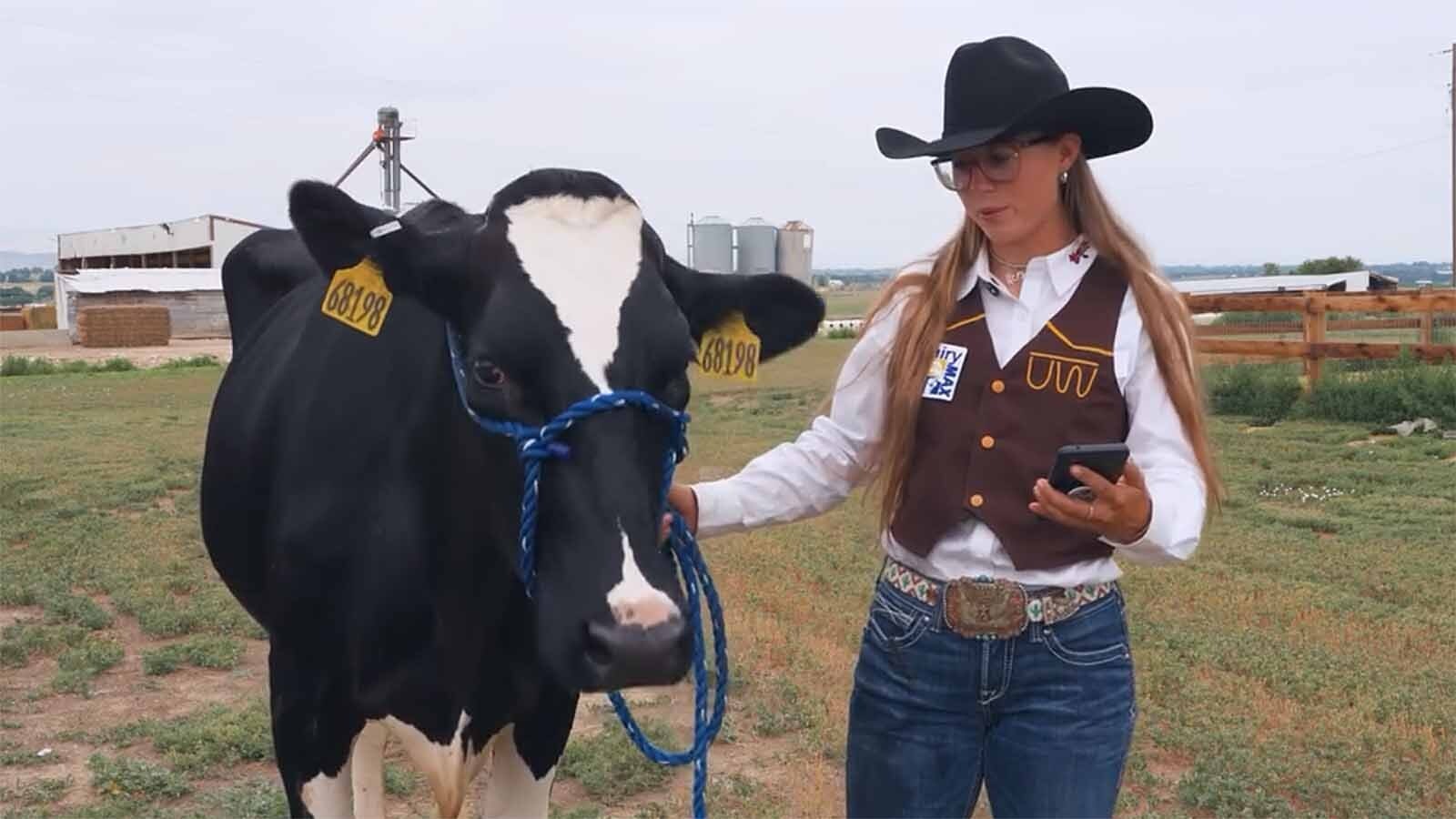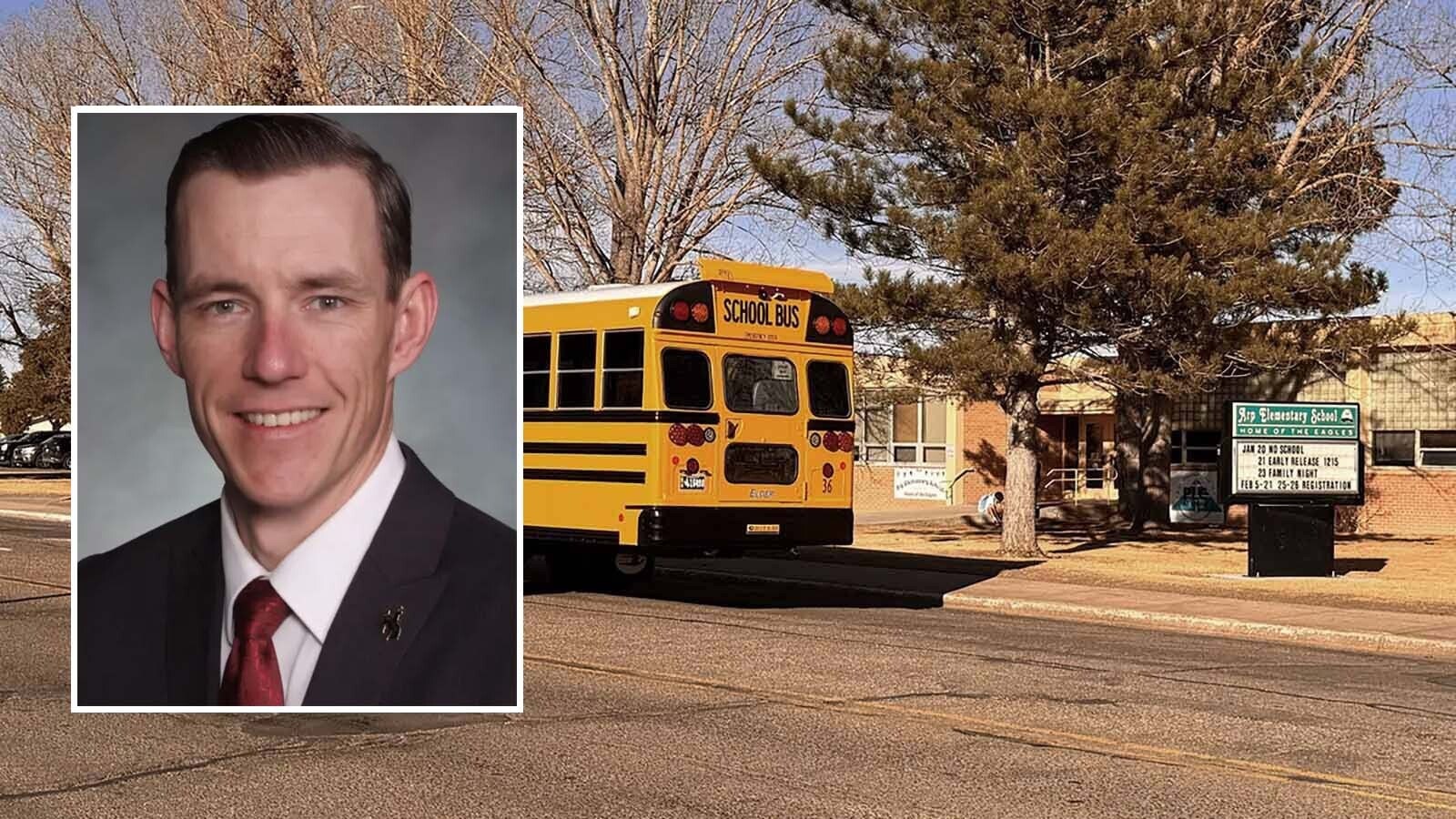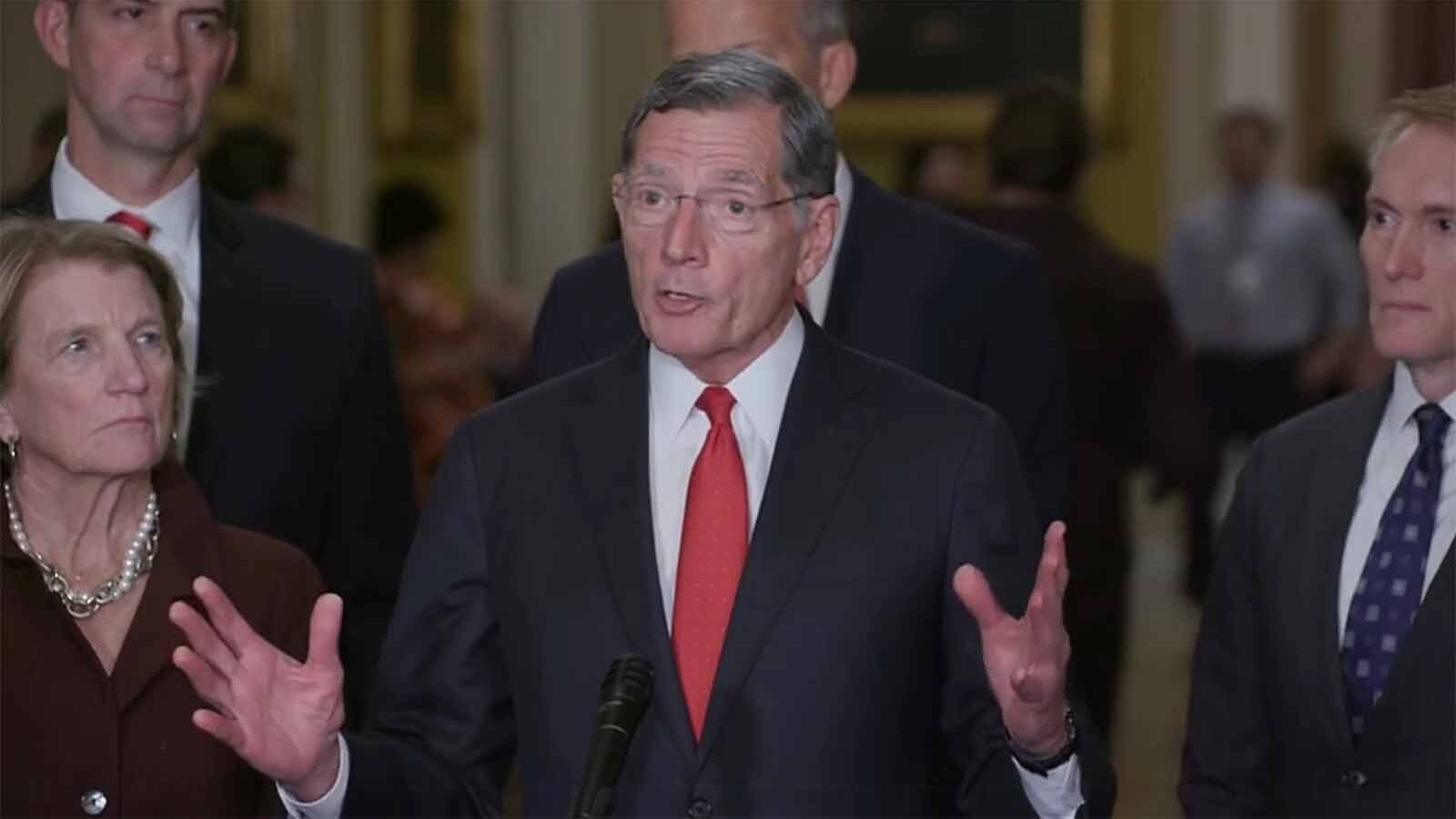State Rep. Martha Lawley, R-Worland, believes it’s time for Wyoming legislators to make a strong statement and stand against transgender participation in female sports.
Lawley says in a Monday op-ed that she’s planning to introduce an amendment to Wyoming’s 2023 Student Eligibility In Interscholastic Sports law to extend the state’s ban on transgender participation in female sports to the collegiate level. The 2023 law already bans transgender participation for students in grades seven through 12.
Lawley’s bill would extend the ban to all athletics played beyond high school at the University of Wyoming and the state’s community colleges.
“As we’ve seen what’s happening in the collegiate area, I was concerned,” Lawley said.
The San Jose State University Controversy
Lawley, who considers herself a strong supporter of Title IX rights, said she was partially influenced to bring the bill by the ongoing saga involving a transgender player on the San Jose State University volleyball team, but was already paying attention to similar issues.
The University of Wyoming volleyball team and others in the Mountain West Conference forfeited matches they had scheduled against San Jose State this season rather than play against Blaire Fleming, a junior outside hitter on the team.
“It (the bill) says that what happened for example with the University of Wyoming volleyball team was the right decision for the university and we are going to make that as a matter of policy for our state,” Lawley said.
On Monday, a federal judge dismissed a lawsuit filed by 11 current and former women’s volleyball players, including three current UW players, against the Mountain West Conference. The plaintiffs had asked the judge to remove the player from the Mountain West tournament, which begins Wednesday.
The plaintiffs filed an appeal Tuesday, asking a higher court to intervene and oust Fleming from the tourney.
In May, the National Association of Intercollegiate Athletes voted to effectively ban trans women from competing in most of its women’s sports, but the much larger and more recognized NCAA of which UW is a member has not across the board.
Lawley said this made it clear to her that it’s time for the Legislature to act on the issue.
“The San Jose State situation certainly clarified that they had sufficient time to solve the problem and they hadn’t done that,” she said.
Twenty-five states, including Wyoming, have bans in transgender participation in sports, according to Movement Advancement Project, but a much smaller number have extended these bans to the college level.
Lawley said her bill would not only prevent transgender athletes from competing for UW, but also would prohibit the university from competing against other teams with transgender members.
“This would cover those schools themselves as publicly funded institutions participating in sports, not only to have transgender students, but to be participating against transgender students from other states,” she said.
She believes addressing the collegiate level may be even more important than youth because of the possibly increased safety hazards involved with an adult’s participation in sports, and the impact their competition could have on other players’ future professional opportunities.
Validity
If Lawley’s bill passes and Wyoming’s ban on transgender participation is expanded, it would represent another step in an escalating trend of the Legislature exerting oversight into the activities and policy decisions made on the UW campus.
State Rep. Karlee Provenza, D-Laramie, whose district covers the UW campus, said lawmakers should be more concerned with more pressing issues like housing and jobs rather than fighting endless culture wars.
“It’s always disappointing to see my colleagues obsess over genitals of less than 1% of the population when we have real problems impacting our state like the cost of health care, lack of mental health services, and the struggle to pay rent and keep food on the table,” Provenza said. “While many of our constituents are dealing with real problems, it’s disappointing that so many of their elected officials are investing in political theater.”
Lawley was a co-sponsor on the 2023 bill brought by Sen. Wendy Schuler, R-Evanston. She said she’s been working with Schuler on the 2025 version, but hasn’t received her official endorsement or co-sponsorship yet.
Lawley said her bill would bring the law to its original version as introduced in 2023 and remove a section instructing the state to create a commission to handle transgender participation issues in the event the law was overturned in court. To date, no lawsuits have been filed challenging the Wyoming law.

Bathrooms And Private Spaces, Too
Lawley is also bringing a bill called the Protecting Women’s Privacy in Public Spaces Act, which would prevent state institutions from compelling the use of bathrooms, locker rooms, lodging for all overnight school-sanctioned trips, dorms and correctional facility spaces based on anything other than biological sex at birth.
“What this bill does is clarify where women have a clear right to privacy and dignity, safety in public spaces,” Lawley said. “It just clarifies what schools are currently facing, parents are facing, in this world of transgenderism and trying to clarify the bathroom situation.”
Lawley said her bill simply aims to seek clarity while protecting women and mentioned how it doesn’t prevent a facility from providing transgender-specific bathrooms if it chooses to provide that accommodation. Allowing a transgender female into a girls’ bathroom, however, the bill clarifies as an unreasonable accommodation.
“This isn’t about excluding people as much as it is about keeping a space that ought to be about privacy and dignity and safety, keeping it that way and providing other alternatives,” Lawley said.
Lawley said she heard about both transgender participation in sports and the use of public bathrooms extensively along the campaign trail this year and that people want the issues clarified. She does not believe transgender females should be allowed to use female locker rooms.
“It’s unfortunate that accommodating the transgender movement, the burden of that has fallen on women,” Lawley said. “It’s affecting their sports and it’s affecting their privacy in bathrooms.
Transgender and LGBTQ activists have countered this argument, saying that transgender women are women, identify as such, and should be recognized by society this way.
At a school board meeting in Powell earlier this month, the board passed a resolution to lobby state legislators for a law that could prevent transgender female students from using girls’ bathrooms.
Tensions also flared around the issue on Capitol Hill last week over a new House rule banning males from the women’s bathrooms and locker rooms throughout the U.S. Capitol complex in response to the recent election of the first openly transgender member of Congress.
Most but not all federal appellate court circuits have upheld transgender students’ access to bathrooms that don’t match their biological sex. The U.S. Supreme Court has not taken a concrete stance on the issue.
President Joe Biden ordered his agencies to view blocking transgender access to some amenities
as a Title IX violation, while President-elect Donald Trump has promised to reverse that approach and ground the law’s application in a biological sex binary.
Lawley hopes both her bills are considered in the House Education Committee. She feels confident both will pass into law. The 2023 bill passed by a large majority and the Legislature has only moved farther to the right since that time.
“I believe there will be a lot of the Legislature to speak into this issue and provide clarity and some good, solid policy that’s legally defensible,” she said.
Leo Wolfson can be reached at leo@cowboystatedaily.com.





